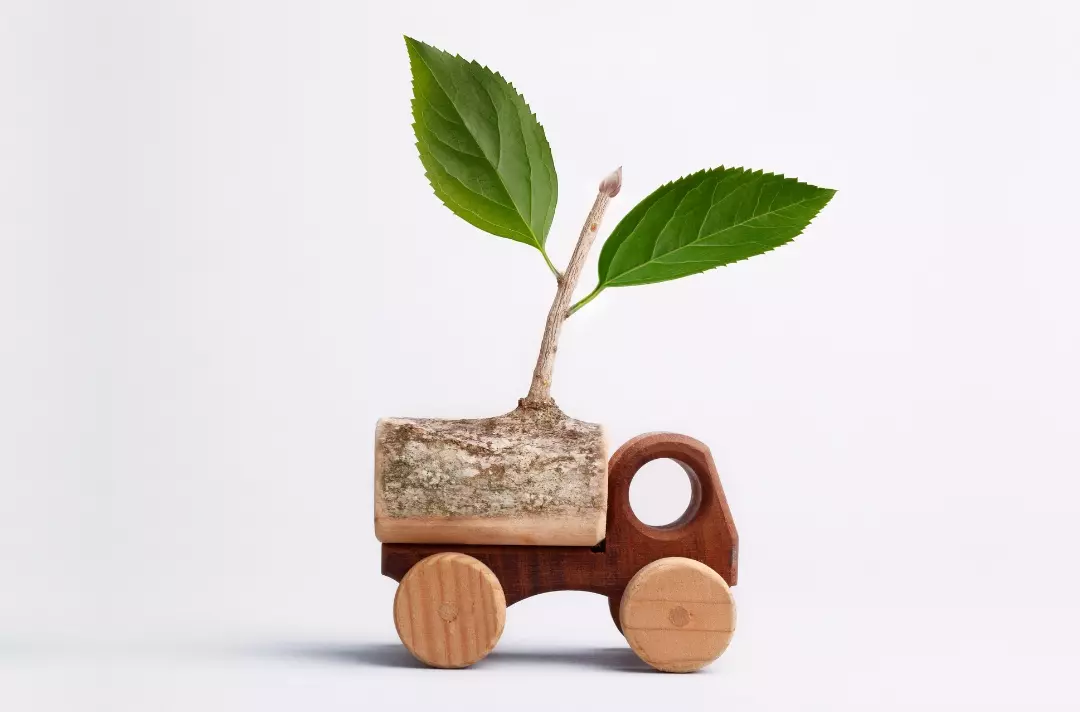15 February 2025
How can we travel more sustainably?
Stevie Hope

Major Phil Howe introduces Stevie Hope to the territory’s new carbon-cutting travel policy.
What’s your favourite policy? It’s easy to dismiss the word because of its association with corporate jargon and red tape, but a good policy can help put principles into practice. One such example is the territory’s new Sustainable Travel Policy.
At its core, the travel policy is guidance for employees and officers who need to book travel for work. Traditionally, this has boiled down to one thing: keep it cheap! That’s why, when Major Phil Howe happened across the territory’s previous policy – published in 2017 – he realised how off-kilter it was with the care for creation mission priority introduced in 2021. A policy is only as good as its relevance, which is why we sometimes need a new one.
At its core, the travel policy is guidance for employees and officers who need to book travel for work. Traditionally, this has boiled down to one thing: keep it cheap! That’s why, when Major Phil Howe happened across the territory’s previous policy – published in 2017 – he realised how off-kilter it was with the care for creation mission priority introduced in 2021. A policy is only as good as its relevance, which is why we sometimes need a new one.
A corps officer at Chelsea, Phil is also the territory’s environmental support officer, working in tandem with Territorial Environmental Officer Major Heather Poxon.
‘I do the boring stuff,’ he laughs. ‘It’s a lot of policies, that sort of thing. That releases Heather to do, you know, the real work – encouraging people to take environmentalism on board.’
While his side of the mission priority might seem less flashy, Heather describes their roles as ‘hardware and hearts’, and it’s the hardware – including this new policy – that underpins everything.
The updated policy builds on research by Sustainability Manager Brian Troddyn (THQ) and injects some nuance by balancing financial cost with carbon cost.
An excellent example is the territory’s use of trains. Rail makes up only 3 per cent of the territory’s transport-based carbon footprint, despite making up 13 per cent of business miles. While it may not be the quickest or cheapest form of travel, this sacrificial giving of time and money when travelling helps to safeguard God’s green Earth.
These principles apply to all of us, not just employees and officers. While the policy may be written specifically around Salvation Army business travel, its fundamentals can help everyone reconsider their personal carbon footprint.
‘When your journey is added to my journey and so on, the carbon impact becomes significant,’ Phil points out. ‘When everybody is thinking about how they travel, it makes a huge difference.
‘We’re dialoguing with colleagues in America, Canada, Australia and New Zealand, who are also looking at their travel policies. When you add them all together, it becomes significant.’
It’s important to note that the policy is neither a mandate nor a command. For employees and officers, it’s as easy to adopt as using some new options when booking tickets through Click Travel – the territory’s travel management agency. For people paying for their own transport, a low-carbon alternative isn’t always affordable. That’s why Phil is keen to assure that the policy is not prescriptive but persuasive.
‘If we’re dogmatic, then all that happens is people get frustrated,’ he recognises. ‘It’s very hard to have a one-size-fits-all formula for everybody. The hope is that this policy will gently challenge us all to consider how we balance that equation of carbon and cost for ourselves.’
Written by

Stevie Hope
Editorial Assistant
Discover more

Divisional Environmental Champion Kathryn Barwise celebrates that we can look at and learn from God’s creation.

Rewild a piece of land at your corps or in your garden with these free packets of wildflower seeds.

Supporting the territory to care for creation and tread softly on our common home.

The UKI Territory has set bold targets to tackle its impact on the environment and reach net-zero carbon emissions by 2040.